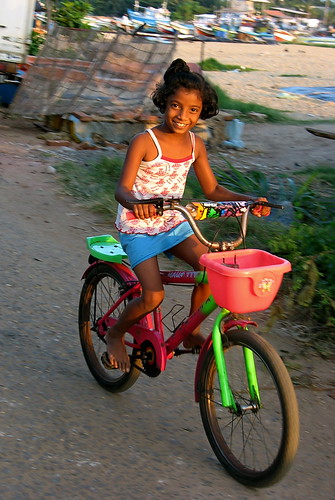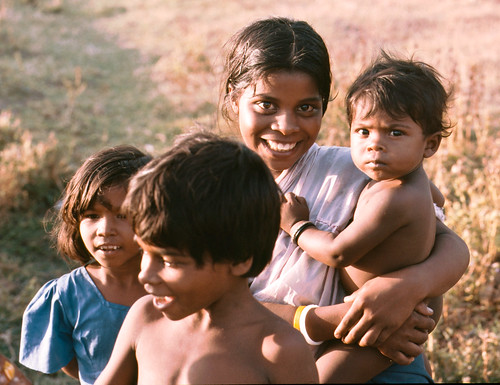Difference between revisions of "Adopting from Sri Lanka"
(→Hague Convention Information) |
|||
| Line 24: | Line 24: | ||
=Hague Convention Information= | =Hague Convention Information= | ||
| + | Sri Lanka is party to the Hague Convention on Protection of Children and Co-operation in Respect of Intercountry Adoption (Hague Adoption Convention or Convention). Intercountry adoption processing in Convention countries is done in accordance with the requirements of the Convention; the U.S. implementing legislation, the Intercountry Adoption Act of 2000 (IAA); and the IAA’s implementing regulations, as well as the implementing legislation and regulations of Sri Lanka. | ||
| + | |||
| + | |||
| + | The Commissioner of Probation and Child Care Services in Colombo, Sri Lanka’s capital, advised the U.S. Embassy in Sri Lanka that foreign citizens residing in Sri Lanka are not permitted to [[adopt]] Sri Lankan children. Foreign citizens who reside outside of Sri Lanka may only [[adopt]] Sri Lankan children who are three months to 14 years of age. U.S. citizens interested in adopting children from Sri Lanka are strongly encouraged to contact the U.S. Embassy in Colombo’s Consular Section by email at consularcolombo@state.gov before formalizing an adoption agreement, to ensure that appropriate procedures (outlined in this country information sheet) are followed, which will make it possible for the Embassy to issue a U.S. immigrant visa for the child. | ||
| + | |||
| + | |||
| + | '''U.S. IMMIGRATION REQUIREMENTS FOR INTERCOUNTRY ADOPTIONS''' | ||
| + | |||
| + | |||
| + | To bring an [[adopted]] child to the United States from Sri Lanka, you must meet eligibility and suitability requirements. The U.S. Department of Homeland Security, U.S. Citizenship and Immigration Services (USCIS) determine who can [[adopt]] under U.S. immigration law. | ||
| + | |||
| + | |||
| + | Additionally, a child must meet the definition of Convention adoptee under U.S. law in order to immigrate to the United States on an IH3 or IH4 immigrant visa. | ||
=Who Can Adopt= | =Who Can Adopt= | ||
Revision as of 20:02, 9 April 2014
Contents
Hague Convention Information
Sri Lanka is party to the Hague Convention on Protection of Children and Co-operation in Respect of Intercountry Adoption (Hague Adoption Convention or Convention). Intercountry adoption processing in Convention countries is done in accordance with the requirements of the Convention; the U.S. implementing legislation, the Intercountry Adoption Act of 2000 (IAA); and the IAA’s implementing regulations, as well as the implementing legislation and regulations of Sri Lanka.
The Commissioner of Probation and Child Care Services in Colombo, Sri Lanka’s capital, advised the U.S. Embassy in Sri Lanka that foreign citizens residing in Sri Lanka are not permitted to adopt Sri Lankan children. Foreign citizens who reside outside of Sri Lanka may only adopt Sri Lankan children who are three months to 14 years of age. U.S. citizens interested in adopting children from Sri Lanka are strongly encouraged to contact the U.S. Embassy in Colombo’s Consular Section by email at consularcolombo@state.gov before formalizing an adoption agreement, to ensure that appropriate procedures (outlined in this country information sheet) are followed, which will make it possible for the Embassy to issue a U.S. immigrant visa for the child.
U.S. IMMIGRATION REQUIREMENTS FOR INTERCOUNTRY ADOPTIONS
To bring an adopted child to the United States from Sri Lanka, you must meet eligibility and suitability requirements. The U.S. Department of Homeland Security, U.S. Citizenship and Immigration Services (USCIS) determine who can adopt under U.S. immigration law.
Additionally, a child must meet the definition of Convention adoptee under U.S. law in order to immigrate to the United States on an IH3 or IH4 immigrant visa.
Who Can Adopt
Residency
Age of Adopting Parents
Marriage
Income
Other
Who Can Be Adopted
How to Adopt
Adoption Authority
The Process
Traveling Abroad
Applying for Your U.S. Passport
A valid U.S. passport is required to enter and leave Sri Lanka. Only the U.S. Department of State has the authority to grant, issue, or verify U.S. passports. Getting or renewing a passport is easy. The Passport Application Wizard will help you determine which passport form you need, help you to complete the form online, estimate your payment, and generate the form for you to print-all in one place.
Obtaining Your Visa
In addition to a U.S. passport, you also need to obtain a visa. A visa is an official document issued by a foreign country that formally allows you to visit. Where required, visas are attached to your passport and allow you to enter a foreign nation. To find information about obtaining a visa for Sri Lanka, see the Department of State's Country Specific Information.
Staying Safe on Your Trip
Before you travel, it's always a good practice to investigate the local conditions, laws, political landscape, and culture of the country. The State Department is a good place to start. The Department of State provides Country Specific Information for every country of the world about various issues, including the health conditions, crime, unusual currency or entry requirements, and any areas of instability.
Staying in Touch on Your Trip
When traveling during the adoption process, we encourage you to register your trip with the Department of State. Travel registration makes it possible to contact you if necessary. Whether there's a family emergency in the United States, or a crisis in Sri Lanka, registration assists the U.S. Embassy or Consulate in reaching you. Registration is free and can be done online.
After Adoption
What resources are available to assist families after the adoption?
Many adoptive parents find it important to find support after the adoption. Take advantage of all the resources available to your family -- whether it's another adoptive family, a support group, an advocacy organization, or your religious or community services.
Here are some good places to start your support group search:
Child Welfare Information Gateway
North American Council on Adoptable Children
Adoption Services Support Group for Adopting Persons
SOURCE
Intercountry Adoption, Bureau of Consular Affairs. U.S. Department of State Country Information










